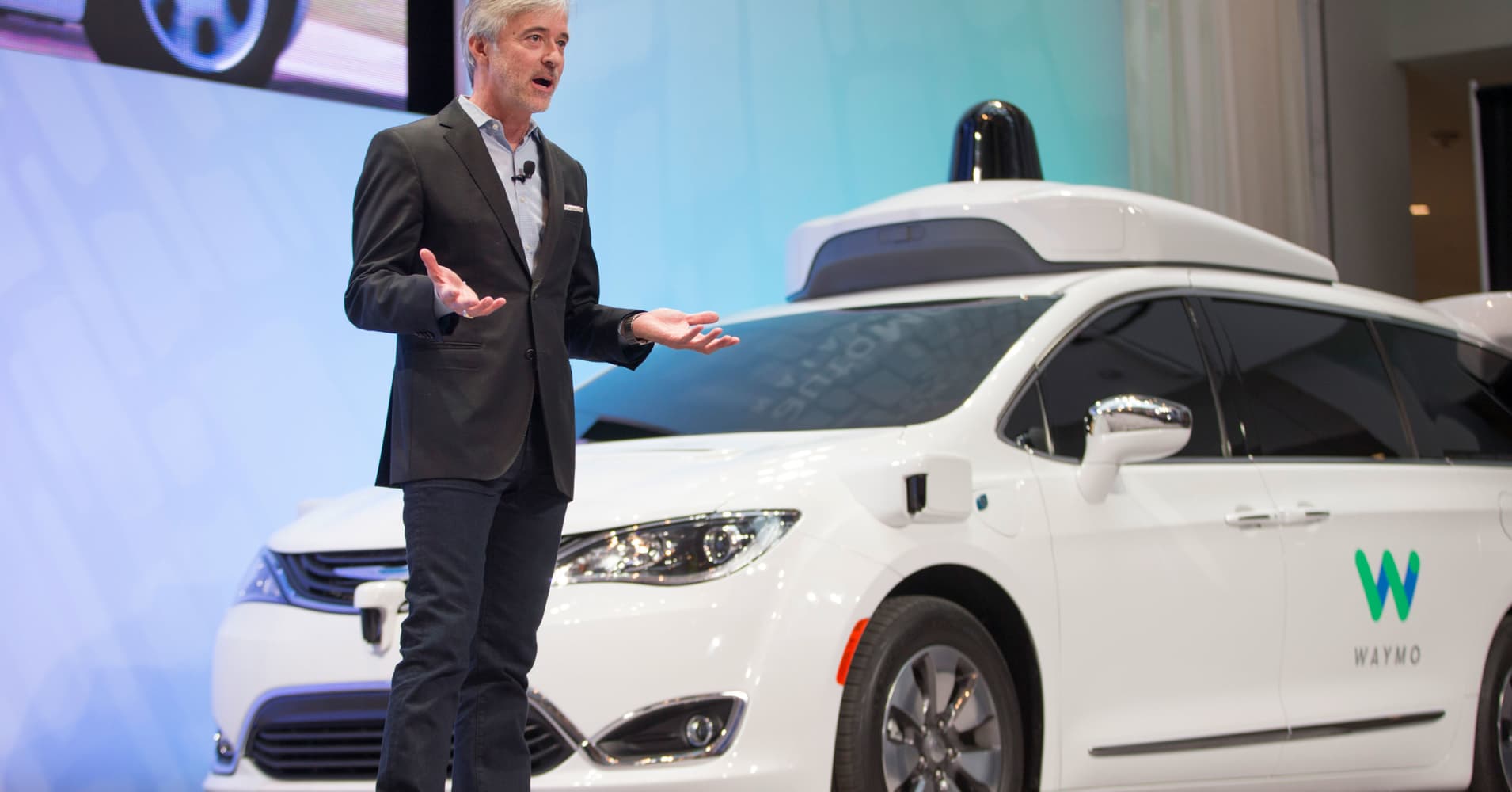
Waymo, which is preparing to launch the first driverless ride-hailing program in the U.S., has become the first company approved to test autonomous vehicles without safety drivers on public roads in California.
The California Department of Motor Vehicles has granted Waymo the state's first permit to begin testing driverless vehicles on public streets and highways, the company said Tuesday. Initially, the autonomous vehicles will be allowed to operate in parts of Mountain View, Sunnyvale, Los Altos, Los Altos Hills and Palo Alto in northern California.
Waymo and its parent company, Alphabet, are both headquartered in Mountain View, California.
After being awarded the permit, the Waymo team wrote in a blog post, "Our thanks to the DMV for granting Waymo the first step forward in California — a green light to get out of the driver's seat when the technology is ready."
That may be happening soon. Waymo plans to launch an autonomous ride-hailing service in the metro Phoenix area before the end of the year. The company says it has logged more than 10 million miles testing its vehicles in real-world traffic. Its driverless ride-hailing service will be in a limited area initially and then expand over time. Eventually, Waymo hopes to bring its robo-taxis to other cities and states.
California would be a logical place for expansion given the number of semi-autonomous and fully autonomous vehicles being tested throughout the state. Until now, California has required those vehicles to have a safety operator in the driver's seat when on public roads. Waymo, a handful of automakers and some tech firms have been testing driverless vehicles at closed, private test facilities for several years.
The driverless permit for public roads in California comes with strict rules about when and where Waymo vehicles can go without a safety driver. For example, the autonomous vehicles cannot go faster than 65 miles per hour, but they will be allowed to drive in fog and light rain.
What if there is an issue on the road? The company says, "If a Waymo vehicle comes across a situation it doesn't understand, it does what any good driver would do: comes to a safe stop until it does understand how to proceed. For our cars, that means following well-established protocols, which include contacting human engineers and testers at Waymo for help in resolving the issue."
The driverless permit in California could give Waymo a leg up on competitors such as Cruise, which is testing self-driving vehicles in San Francisco. The General Motors subsidiary is racing to establish an autonomous ride-hailing program of its own. Cruise plans to have its robo-taxis providing public rides by the end of 2019.
No comments:
Post a Comment